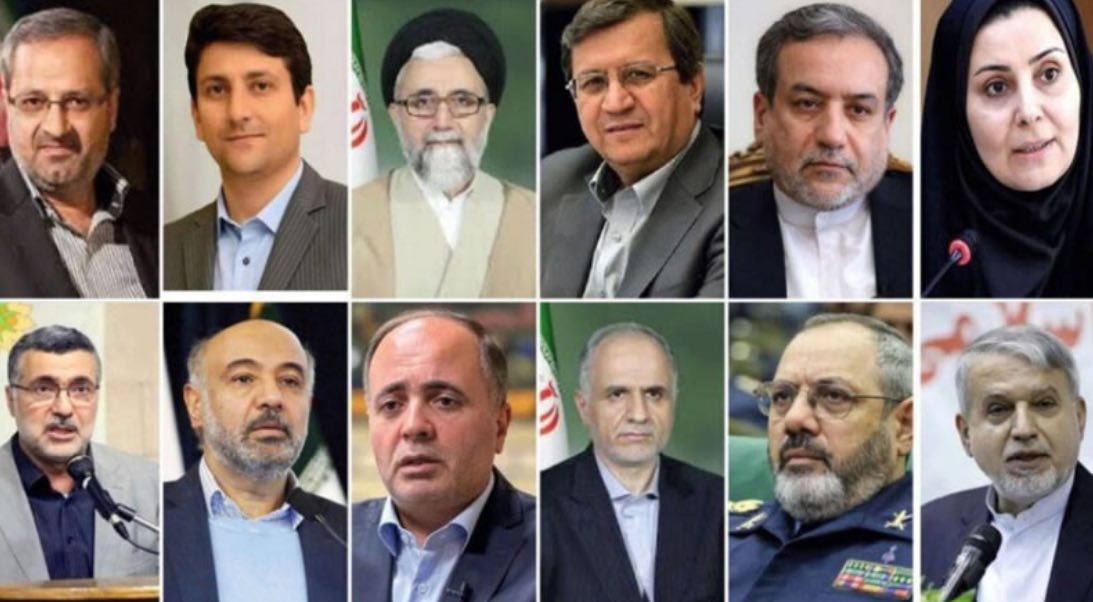Unexpected Cabinet
Throughout these days, many media outlets and a segment of society followed the news of this newly established organization moment by moment, opposing those seeking shares wherever possible, and supporting positive discrimination for women, Sunnis, and religious minorities. However, the release of the proposed ministers’ list was met with great astonishment by the community hopeful for change and reform.
If we take a look at the released list, both the political pressure from the ruling faction and interference in it are evident.
In this list, among the progressive reformists, only the name of Mohammadreza Zafarghandi as the Minister of Health is mentioned, a figure whose name was among the options considered by this organization during the committee and steering council activities. Alongside Abdolnaser Hemmati, the proposed Minister of Economy, and Gholamreza Nouri Ghezeljeh, the proposed Minister of Agriculture from the Executives of Construction Party, these are effectively the only three reformist options whose organization within the framework of the Reform Front nominated and supported Masoud Pezeshkian as their candidate in the elections.
Additionally, if we consider some of the proposed ministers who are neither principlists nor reformists, such as Ahmad Meidari, Sattar Hashemi, Mohsen Paknejad, Farzaneh Sadegh Malvajerd, and Seyed Mohammad Atabak, as options influenced by the expert view of the working groups.
The rest of the options seem to be more influenced by political discussions and negotiations.
From the close associates of Hassan Rouhani and his government, Seyed Abbas Salehi, Seyed Reza Salehi Amiri, Hossein Simayee Sarraf, and Seyed Abbas Araghchi, and from the principlist faction, Iskandar Momeni, Ahmad Donyamali, Abbas Aliabadi, and specifically Seyed Esmaeil Khatib and Aziz Nasirzadeh are known to be aligned with this faction. Although Amin Hossein Rahimi’s factional affiliation and activity as the proposed Minister of Justice are not clear, given his previous activities, he is likely considered close to Gholamhossein Mohseni Ejei, the current head of the judiciary, who has previously been a principlist figure.
Of course, the President has full authority in choosing his cabinet members, and the lack of real political parties has practically made it impossible to predict the decisions of government heads in our country. However, in recent days, there have been reports of pressure exerted on Pezeshkian by reformist figures, and the Reform Front also expressed concern about this occurrence and the news surrounding it.
Now, with such a cabinet arrangement that does not quite align with the vision during Masoud Pezeshkian’s election campaign, one can only hope that Pezeshkian knows the field and the group he has entered and can maintain his stance as a manager, as he has stated.
Although everyone is aware of the limitations and obstacles facing presidents in determining the cabinet and ministers, Pezeshkian should not forget that people voted for him to counter anti-development forces, lift filtering, solve the hijab issue, improve relations with the world, which he has repeatedly mentioned in his speeches, and to prevail an expert view in government decisions.
If he believes that with these ministers and giving key ministries to non-aligned factions, he can proceed on the path he outlined for the people during and after the campaign, we wish him success. However, if he cannot, he should be mindful of the hopes that may be dashed and the dissatisfaction that may follow this process.
Just in the past few hours after the announcement of the proposed ministers’ list and the resulting disappointment, some reformists have spoken of the deadlock in conventional reformism, the President’s failing grade, and concern about the continuation of the current situation instead of change.

